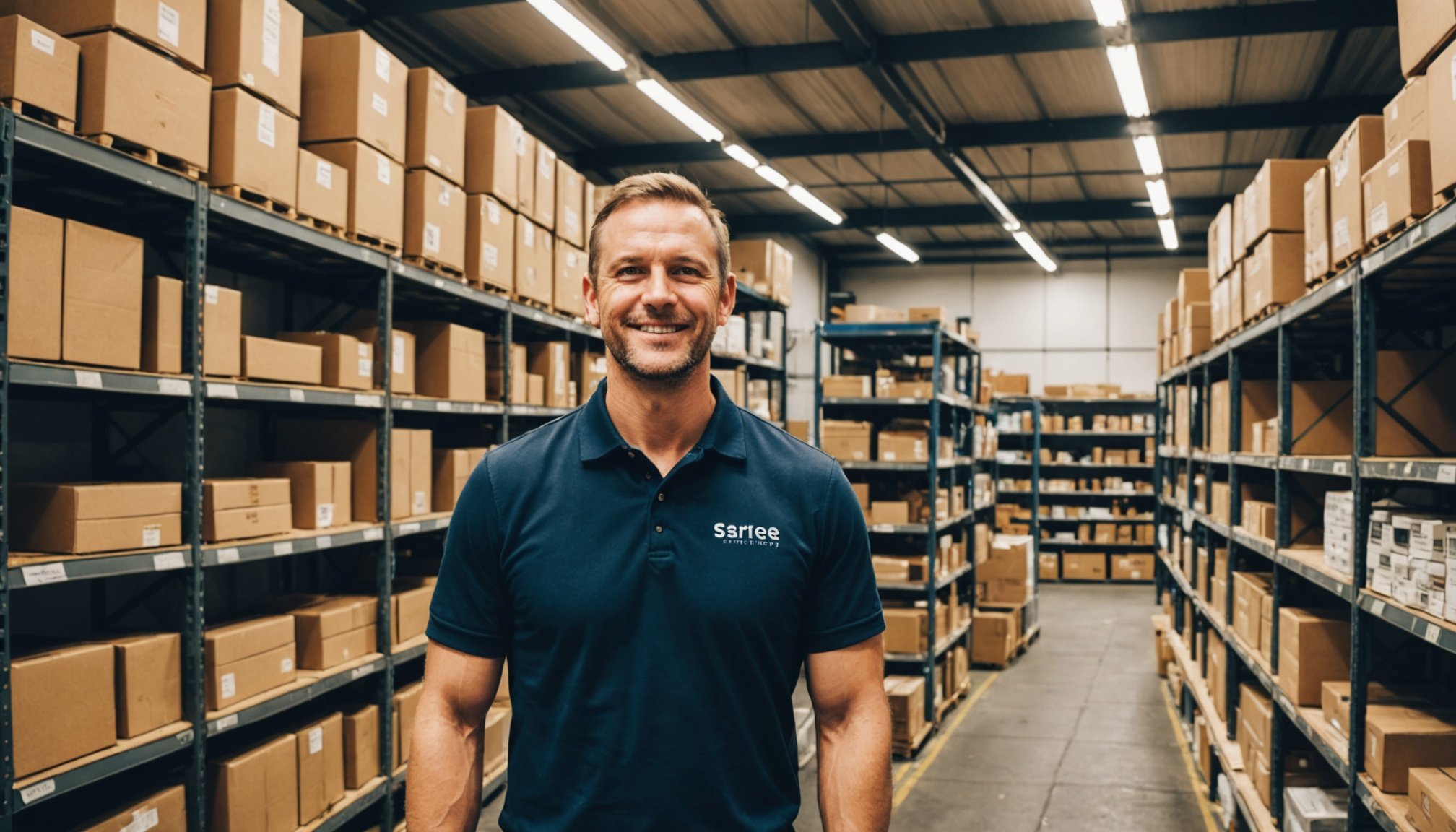Strengthening Your Supply Chain: The Ultimate Guide for Birmingham Retailers
In the bustling retail landscape of Birmingham, a robust supply chain is the backbone of any successful business. Whether you are a small independent shop or a large retail chain, managing your supply chain effectively can make the difference between thriving and merely surviving. Here’s a comprehensive guide to help you enhance your supply chain, leveraging the latest innovations and best practices.
Understanding the Basics of Supply Chain Management
Before diving into the intricacies, it’s essential to understand what supply chain management entails. Supply chain management involves the coordination and integration of activities from raw material sourcing to end-product delivery. This includes planning, sourcing, production, logistics, and delivery.
In the same genre : Crafting an Agile Customer Service Training Program for Peak Performance at Sheffield Call Center
Key Components of Supply Chain Management
- Planning: This involves forecasting demand, managing inventory, and planning production.
- Sourcing: Procuring raw materials or goods from suppliers.
- Production: Manufacturing the product.
- Logistics: Managing the transportation and storage of goods.
- Delivery: Ensuring the product reaches the customer.
Leveraging Technology for Smarter Logistics
In today’s digital age, technology plays a crucial role in optimizing supply chains. Companies like GXO are at the forefront of this innovation, using machine learning, data science, and predictive analytics to make logistics a competitive advantage.
How Technology Enhances Logistics
- Warehouse Automation: Implementing robots and automated systems can significantly improve productivity. For instance, GXO reports a 4-6x productivity improvement with employees supported by robots[1].
- Predictive Analytics: Using data to predict demand and manage inventory more effectively.
- Real-Time Tracking: Monitoring shipments in real-time to ensure timely delivery and reduce delays.
Outsourcing to Expert Logistics Partners
Outsourcing logistics to a professional partner can be a game-changer for Birmingham retailers. Here are seven ways an expert logistics partner can help:
Topic to read : Effortless transcription: your go-to online editor solution
Benefits of Outsourcing Logistics
- Better Inventory Management: Expert partners can optimize inventory levels, reducing stockouts and overstocking.
- Improved Returns Processes: Efficient reverse logistics can minimize backlogs and get returned products back into stock faster[1].
- Enhanced Customer Satisfaction: Timely and reliable delivery services can significantly boost customer satisfaction.
- Cost Reduction: Outsourcing can help reduce operational costs by leveraging the economies of scale of the logistics provider.
- Increased Productivity: Automated processes and specialized labor can increase productivity.
- Sustainability: Many logistics providers, like GXO, focus on sustainability, reducing energy consumption and environmental impact[1].
- Scalability: Partners with a global reach, such as SEKO Logistics, can help businesses scale into new markets efficiently[3].
Building a Sustainable Supply Chain
Sustainability is no longer just a buzzword; it’s a necessity for modern businesses. Here’s how you can build a more sustainable supply chain:
Strategies for Sustainability
- Energy-Efficient Operations: Implementing energy-saving practices in warehouses and distribution centers.
- Green Transportation: Using electric or hybrid vehicles for transportation.
- Reducing Waste: Minimizing packaging and reducing waste in the supply chain.
- Ethical Sourcing: Ensuring that raw materials are sourced ethically and responsibly.
| Strategy | Benefits | Examples |
|---|---|---|
| Energy-Efficient Operations | Reduced energy costs, lower carbon footprint | GXO’s focus on reducing energy consumption[1] |
| Green Transportation | Lower emissions, compliance with regulations | Using electric vehicles for last-mile delivery |
| Reducing Waste | Cost savings, improved brand image | Minimizing packaging materials |
| Ethical Sourcing | Improved brand reputation, compliance with regulations | Ensuring suppliers adhere to ethical standards |
Enhancing Operational Efficiency
Operational efficiency is crucial for maintaining a competitive edge. Here are some practical tips to enhance your operational efficiency:
Tips for Operational Efficiency
- Streamline Processes: Automate repetitive tasks and streamline workflows.
- Optimize Inventory: Use data analytics to manage inventory levels effectively.
- Improve Forecasting: Use predictive analytics to forecast demand accurately.
- Enhance Procurement: Implement just-in-time procurement to reduce inventory costs.
Case Studies: Success Stories in Supply Chain Management
Real-world examples can provide valuable insights into effective supply chain management.
Optimas: A Success Story in Fastener Supply Chain
Optimas, a leading industrial fastener distributor, has helped numerous businesses streamline their supply chains. For example, by consolidating two separate part numbers into one standard component, Optimas helped a leading truck manufacturer achieve a 71% decrease in cost per item, resulting in a $200,000 savings in materials procurement[5].
GXO: Innovating in Logistics
GXO’s partnership with Calliope in Italy is another exemplary case. This partnership includes warehouse management, e-fulfillment, returns management, and value-added services, showcasing how a professional logistics partner can enhance supply chain operations[1].
Developing the Right Skills for Supply Chain Management
To manage your supply chain effectively, you need the right skills. Here’s how you can develop these skills:
Educational Programs
- MSc in Supply Chain Management: Programs like those offered at Aston University provide students with the skills to navigate complex supply chain challenges. These courses cover topics such as strategic decision-making, risk management, and operational efficiency[4].
Professional Development
- Workshops and Training: Regular workshops and training sessions can help your team stay updated with the latest trends and technologies in supply chain management.
- Industry Certifications: Certifications like the Certified Supply Chain Professional (CSCP) can enhance your team’s credibility and skills.: Building a Resilient Supply Chain for Birmingham Retailers
Building a resilient supply chain is not a one-time task; it’s an ongoing process that requires continuous improvement and innovation. By leveraging technology, outsourcing to expert partners, focusing on sustainability, and developing the right skills, Birmingham retailers can enhance their supply chains and gain a competitive edge.
Final Tips for Birmingham Retailers
- Stay Informed: Keep up with the latest trends and technologies in supply chain management.
- Be Adaptable: Be ready to adapt to changes in the market and consumer demand.
- Focus on Customer Satisfaction: Ensure that your supply chain is customer-centric, focusing on timely and reliable delivery services.
- Invest in Sustainability: Make sustainability a core part of your supply chain strategy to reduce costs and improve your brand image.
By following these guidelines and staying committed to continuous improvement, you can strengthen your supply chain and drive your business towards long-term success in the vibrant retail landscape of Birmingham.











